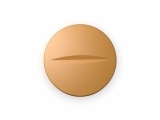Health informatics vs pharmacy informatics
Health informatics and pharmacy informatics are two specialized fields that play a crucial role in the healthcare industry. While they share certain similarities, there are also key differences between the two. Both disciplines utilize information technology to improve the overall efficiency and effectiveness of healthcare delivery, but they have distinct focuses and objectives.
Health informatics primarily deals with the management of healthcare information and data. It involves the collection, organization, and analysis of patient records, medical histories, and other healthcare-related information. The goal of health informatics is to enhance the quality of patient care, improve decision-making processes, and promote patient safety. Professionals in this field work on developing and implementing electronic health record systems, health information exchange platforms, and clinical decision support systems.
On the other hand, pharmacy informatics focuses specifically on the incorporation of technology and information systems in pharmacy practice. It involves the management of medication-related data, drug information, and pharmacy workflows. The objective of pharmacy informatics is to ensure accurate medication ordering, dispensing, and administration. Professionals in this field work on designing and optimizing pharmacy information systems, including computerized physician order entry systems, medication dispensing robots, and medication management software.
In summary, while health informatics and pharmacy informatics both leverage technology and data to improve the delivery of healthcare services, they have distinct areas of focus. Health informatics deals with overall healthcare information management, aiming to enhance patient care and safety. Pharmacy informatics, on the other hand, focuses specifically on medication-related data and workflows to ensure accurate and efficient pharmaceutical care.
Health Informatics
Health informatics is a discipline that combines healthcare, information technology, and communication to improve patient care and outcomes. It encompasses the use of electronic health records (EHRs), computerized physician order entry (CPOE) systems, telemedicine, and other technologies to collect, store, and analyze health data for clinical decision-making and research purposes.
Health informatics professionals play a crucial role in ensuring the effective use of technology in healthcare settings. They are responsible for designing and implementing health information systems, managing databases, and ensuring data security and privacy. They also collaborate with healthcare providers and administrators to develop and optimize workflows, enhance patient engagement, and improve the overall quality and efficiency of healthcare delivery.
Key areas of focus in health informatics include:
- Health information management: This involves the collection, storage, and retrieval of patient health data in a secure and standardized manner. Health informatics professionals ensure that accurate and complete records are available to healthcare providers when needed.
- Clinical decision support: Health informatics tools can provide evidence-based guidelines, alerts, and reminders to assist healthcare professionals in making diagnostic and treatment decisions. This helps improve patient safety and clinical outcomes.
- Health data analytics: By analyzing large volumes of health data, health informatics professionals can identify trends, patterns, and correlations that can inform clinical practice, healthcare policy, and public health interventions.
- Health information exchange: The sharing of health information between different healthcare providers and organizations is essential for coordinated and integrated care. Health informatics professionals work on developing interoperable systems that facilitate the exchange of data while ensuring privacy and security.
In summary, health informatics combines healthcare and technology to enhance patient care, optimize workflows, and improve healthcare outcomes. It plays a crucial role in the digital transformation of healthcare, enabling the efficient and secure management of health information and promoting evidence-based practice.
Pharmacy Informatics
Pharmacy Informatics is a specialized field within health informatics that focuses on the use of technology and data management in pharmacy practice. It involves the integration of information technology systems and processes to support medication management, medication safety, and patient care in the pharmacy setting.
Role of Pharmacy Informatics Professionals:
In the field of Pharmacy Informatics, professionals play a critical role in optimizing the use of technology and information systems to improve patient outcomes and medication safety. They are responsible for designing, implementing, and maintaining computerized systems for medication dispensing, inventory management, and other pharmacy-related tasks.
Key Functions of Pharmacy Informatics:
- Medication Management: Pharmacy informatics professionals ensure the efficient and safe use of medications by developing and maintaining computerized systems for medication ordering, dispensing, and administration. These systems help to reduce errors and improve medication adherence.
- Decision Support: They provide clinical decision support tools that assist pharmacists in making informed decisions regarding medication selection, dosing, and interactions. These tools help to ensure the safe and effective use of medications.
- Data Analysis: Pharmacy informatics professionals analyze medication-related data to identify trends, patterns, and opportunities for improvement. They use this information to develop strategies for optimizing medication therapy and improving patient outcomes.
Benefits of Pharmacy Informatics:
The field of Pharmacy Informatics offers several benefits, including:
- Improved Patient Safety: By implementing computerized medication management systems, the risk of medication errors is reduced, leading to improved patient safety.
- Enhanced Efficiency: Pharmacy informatics systems streamline medication-related tasks, such as dispensing and inventory management, resulting in increased operational efficiency.
- Advanced Clinical Decision-Making: The availability of clinical decision support tools helps pharmacists to make more evidence-based decisions, leading to improved patient outcomes.
- Data-Driven Insights: Analyzing medication-related data provides valuable insights that can be used to identify areas for improvement and optimize medication therapy.
In conclusion, Pharmacy Informatics plays a crucial role in optimizing medication management and patient care through the integration of technology and data management systems. It helps pharmacists to improve medication safety, enhance efficiency, make informed decisions, and provide better patient outcomes. By leveraging technology and data analysis, Pharmacy Informatics contributes to the advancement of pharmacy practice.
Roles and Responsibilities
Health Informatics:
The role of a health informatics professional is to ensure the proper management of health information and data within a healthcare organization. They are responsible for designing and implementing systems to capture, store, and analyze patient information. Health informatics professionals also play a vital role in ensuring data security and privacy, as well as in developing and implementing electronic health records systems.
Health informatics professionals collaborate with healthcare providers, administrators, and IT departments to ensure the effective use of technology in improving patient care and outcomes. They help in developing and managing clinical decision support systems and are involved in the integration of healthcare systems and interoperability of health information among different healthcare providers.
Additionally, health informatics professionals often take part in research and quality improvement initiatives by analyzing healthcare data and identifying patterns or trends that have the potential to improve patient care and population health.
Pharmacy Informatics:
The responsibilities of a pharmacy informatics professional revolve around the effective use of information technology in the pharmacy setting. They are responsible for implementing and managing pharmacy information systems, such as electronic prescription systems and medication dispensing systems.
Pharmacy informatics professionals work closely with pharmacists and pharmacy staff to ensure the safe and efficient use of technology in medication management. They develop and maintain medication databases, provide support for pharmacy automation systems, and assist in the creation and maintenance of medication order sets and drug formularies.
In addition, pharmacy informatics professionals contribute to medication safety initiatives by participating in medication error analysis and prevention, as well as in the development and implementation of medication safety protocols. They also play a role in medication therapy management, using technology to optimize medication use and monitor patient outcomes.
Education and Training
Health Informatics and Pharmacy Informatics require different levels of education and training.
Health Informatics Education and Training
Health Informatics professionals typically need a bachelor's degree in Health Informatics, Medical Informatics, or a related field. Some positions may require a master's degree or higher, especially for more advanced roles such as Health Informatics Manager or Director.
The curriculum for Health Informatics programs often includes courses in healthcare information systems, electronic health records, medical coding, data analytics, health data standards, and healthcare privacy and security. Students also gain hands-on experience with health information technology systems through internships or practical training.
Certifications in Health Informatics, such as the Certified Professional in Health Informatics (CPHI) or the Certified Healthcare Information Systems Manager (CHISM), can provide further credentials and demonstrate specialized knowledge in the field.
Pharmacy Informatics Education and Training
To work in Pharmacy Informatics, individuals typically need a Doctor of Pharmacy (Pharm.D.) degree and a background in pharmacy practice. In addition to their pharmacy education, they may pursue additional training or certifications in Pharmacy Informatics to specialize in the field.
The curriculum for Pharmacy Informatics programs often includes courses in pharmacy information systems, medication management systems, medication safety, clinical decision support, and pharmacy data analysis. Students also gain practical experience through internships or rotations in pharmacy informatics settings.
Certifications in Pharmacy Informatics, such as the Certified Pharmacy Informatics Professional (CPIP) or the Board Certified Pharmacy Informaticist (BCPI), can demonstrate expertise and a commitment to continuing professional development in the field of Pharmacy Informatics.
Overall, both Health Informatics and Pharmacy Informatics require specialized education and training to ensure professionals have the necessary knowledge and skills to effectively utilize health information technology and improve healthcare outcomes.
Career Opportunities
Health Informatics
Health informatics professionals have a wide range of career options available to them in various healthcare settings. They can work in hospitals, clinics, research institutions, government agencies, and private companies. Some common job titles in health informatics include:
- Health Informatics Specialist
- Health IT Consultant
- Clinical Informatics Manager
- Health Data Analyst
- Health Information Manager
Health informatics professionals play a crucial role in managing and analyzing healthcare data, implementing and maintaining electronic health record systems, developing data-driven strategies for improving patient care, and ensuring compliance with privacy and security regulations.
Pharmacy Informatics
Pharmacy informatics professionals also have a range of career opportunities in the field of pharmacy and healthcare. They can work in community pharmacies, hospitals, pharmaceutical companies, research institutions, and government agencies. Some common job titles in pharmacy informatics include:
- Pharmacy Systems Analyst
- Pharmacy Informatics Specialist
- Clinical Pharmacist Informaticist
- Pharmaceutical Data Analyst
- Pharmacy IT Manager
Pharmacy informatics professionals are responsible for managing and maintaining pharmacy information systems, optimizing medication management processes, analyzing medication data for clinical decision support, and ensuring the safe and effective use of medication through technology.
Similarities
Both health informatics and pharmacy informatics offer diverse career opportunities in the healthcare industry. Professionals in both fields work with healthcare data and technology to improve patient care and optimize healthcare processes. Additionally, both health informatics and pharmacy informatics professionals need strong analytical skills, knowledge of healthcare regulations and standards, and effective communication skills to succeed in their careers.
Differences
While there are similarities in the career opportunities between health informatics and pharmacy informatics, there are also some key differences. Health informatics professionals focus on managing and analyzing healthcare data on a broader level, working with various healthcare professionals to improve patient outcomes. On the other hand, pharmacy informatics professionals focus specifically on medication-related data and systems, working closely with pharmacists and other healthcare providers to ensure the safe and effective use of medications.
Follow us on Twitter @Pharmaceuticals #Pharmacy
Subscribe on YouTube @PharmaceuticalsYouTube





Be the first to comment on "Health informatics vs pharmacy informatics"